Increasing Access to Justice in the Solomon Islands
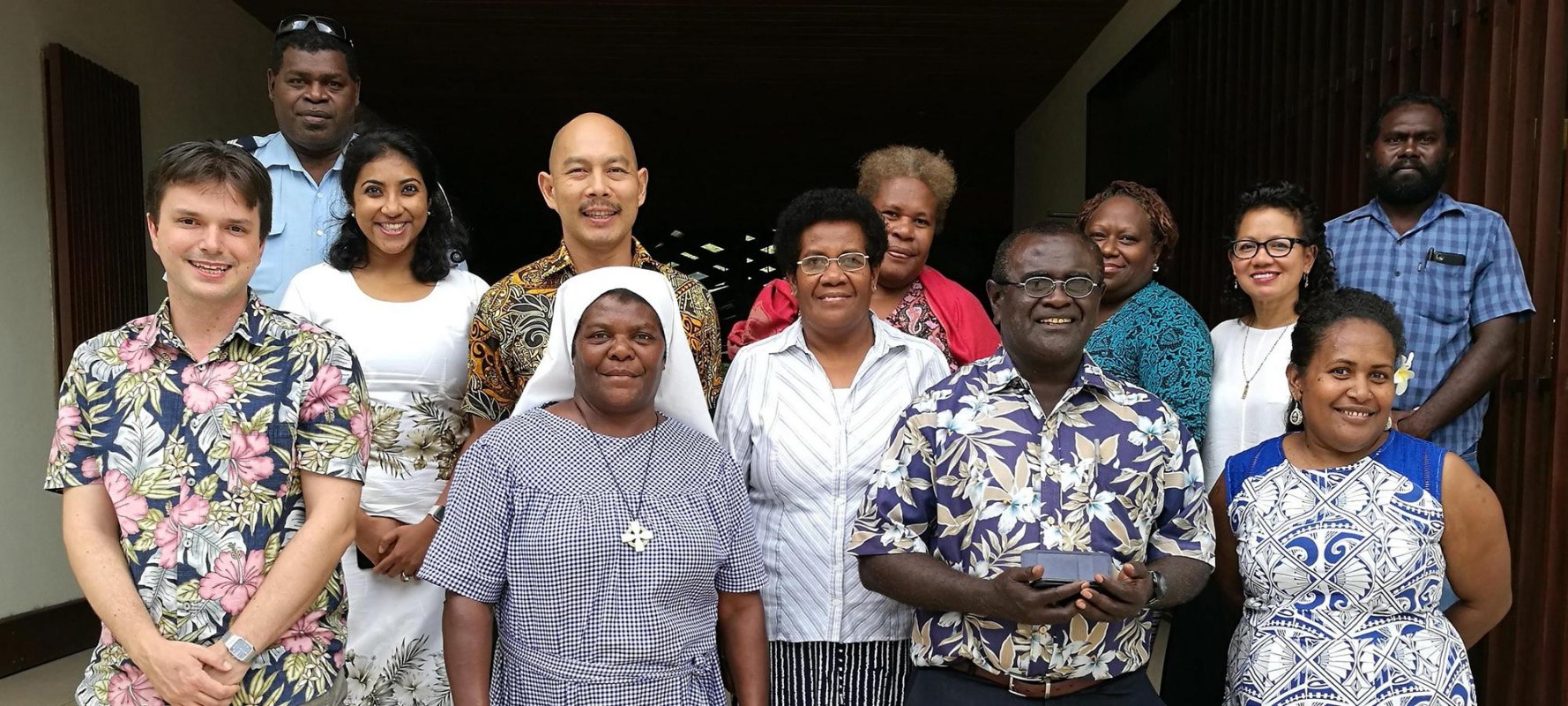
Domestic violence in the Solomon Islands is prevalent as SPC’s Solomon Islands Health and Safety Survey of 2009 showed. Sixty-four percent of women aged 15-49 have experienced sexual and/or physical violence in their lifetime by an intimate partner. Furthermore, women generally do not report domestic violence and do not seek the assistance of formal services. In addition, prevailing beliefs and attitudes about VAW remain a challenge throughout the country.
SPC marks Human Rights Day with national awards in six Pacific countries
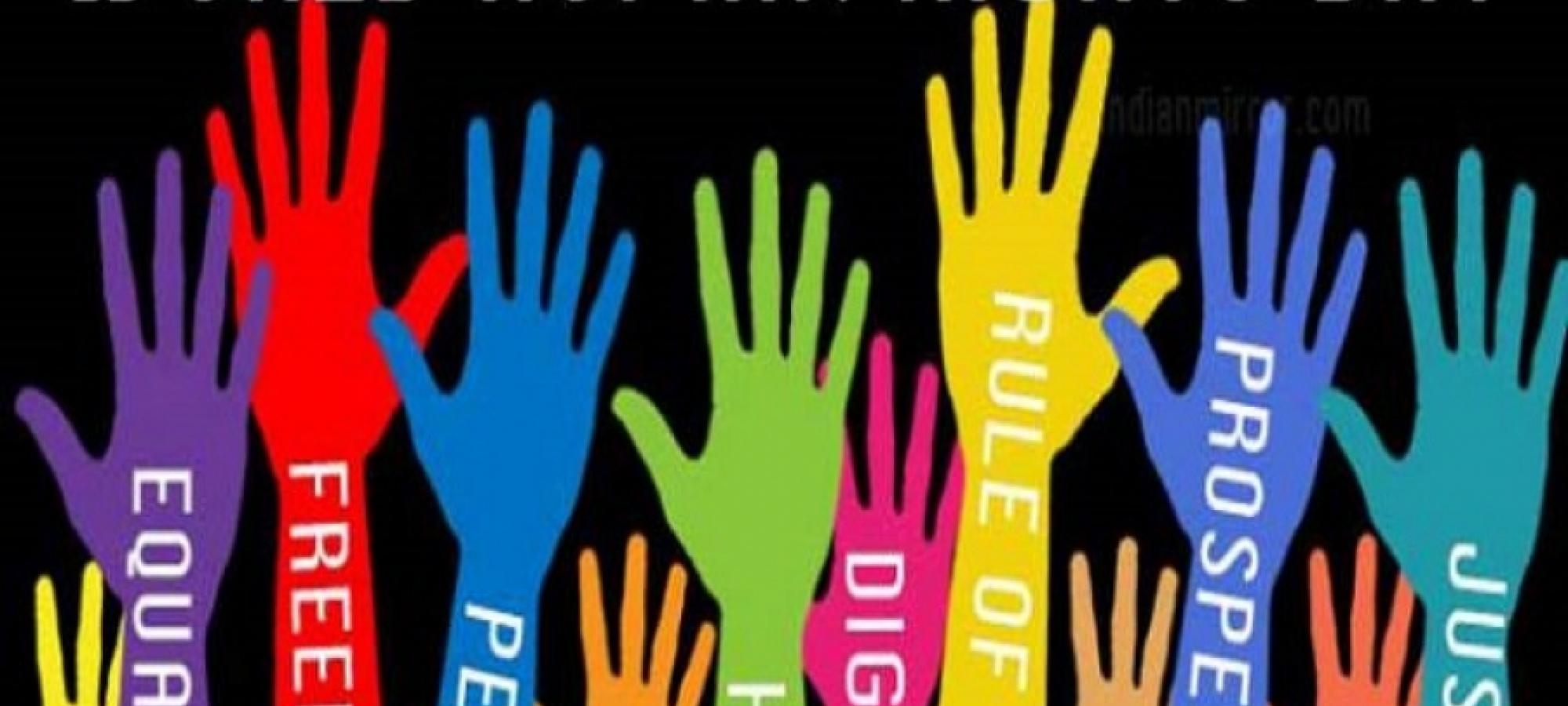
Suva – To mark International Human Rights Day today, 10 December 2014, the Secretariat of the Pacific Community (SPC) is partnering with government ministries in the Federated States of Micronesia, Kiribati, Samoa, Solomon Islands, Tonga and Tuvalu, to present individuals and organisations with Human Rights Awards.
‘The National Human Rights Awards initiative is aimed at rewarding and celebrating outstanding work in human rights in the Pacific region and also to send a clear message to human rights defenders that the Pacific community is grateful for, and supports, their tireless efforts to promote human rights for all,’ the Deputy Director of SPC’s Regional Rights Resource Team (RRRT), Mark Atterton, said.
The theme for the awards is ‘human rights in everyday life’, which covers many aspects of our daily lives, including rights to food, shelter, education, health, protection, freedom of expression and many more.
The Pacific is not immune to human rights violations, with violence against women a critical concern for the region. According to studies by the United Nations Population Fund (UNFPA) in collaboration with SPC, the Pacific region has some of the highest rates of violence against women in the world.
National studies in 2009 and 2010, in Samoa, Kiribati, the Solomon Islands, Tonga, Fiji and Vanuatu, indicate that the rates of intimate partner violence are as high as 60 to 70%. Inadequate laws and policies fail to protect women and their families, and impact adversely on the development of a country.
At a recent SPC-RRRT regional lawyers’ consultation, former high court judge in Fiji, Madam Mere Pulea, encouraged lawyers of the region to ‘be at the forefront to challenge inequalities and discrimination faced by women, and to play a critical role for the benefit of society.’
‘The need to champion gender equality is pivotal to the development and realisation of human rights, and to sustainable development in the region,’ said Mark Atterton.
SPC RRRT won the prestigious UNICEF Maurice Pate Award in 1998 for its pioneering work in promoting human rights education for women and children in the Pacific. Since then, SPC RRRT has been offering the Pacific Human Rights Awards to encourage the development of a human rights culture that will protect the rights and promote the well-being of disadvantaged and vulnerable groups.
The 2014 national awards include:
Kiribati
Rikiaua Takeke
Special recognition for highlighting the right to religion through the documentation of Catechist Tikarerei Takirua’s life story of service to the people of Kiribati.
Selaina Tekonnang
Special recognition for highlighting the right to marriage and to be free from violence through poetry.
Wayne Uan
Special recognition for highlighting the right to participate in any community activities without distinction of any kind such as sex, colour, race, religion or other status.
Samoa
Aoga Fiamalamalama
Special recognition for promoting the right of a child to education in Samoa, including children with disabilities, through role play.
Deborah Jacinta Leu’o
Special recognition for promoting human rights in Samoa through creative drawing.
Faaolo Utumapu-Utailesolo
Special recognition for highlighting the rights of persons with disabilities through the documentation of her personal life story.
Hemiriah Ioane
Special recognition for highlighting the right to education through creative writing.
Nu’ufou Isaia
Special recognition for promoting the right to education for children with disabilities in Samoa, through visual art.
Piu Maneralokina Filipo
Special recognition for highlighting human rights through creative writing.
Samoa Fa’afafine Association
In recognition of the contribution to the promotion of the human rights of marginalised groups, including Fa’afafine and LGBTI groups in Samoa.
Samoa National Youth Council
Special recognition for promoting the right to be heard and of freedom of expression in Samoa through audio visual arts.
Samoa Returnees Charitable Trust
Contribution to advancing the right to freedom from discrimination of Samoan deportees rehabilitating in the community and in community outreach programmes.
Sinalaua Papatoetoe Tupolo
Special recognition for highlighting the right to education, respect and equality through the documentation of her personal life story.
Taiese Taiese
Special recognition for highlighting the right of children to social protection through creative writing.
Tiapapata Art Centre
Special recognition for advancing the right to develop life skills and the right to participate in cultural life, through the Breakthrough initiative, aimed at supporting people affected by trauma and abuse.
Solomon Islands
Br. Gorge Van Der Sant
Special recognition for contribution to advancing the right to education for young persons with disabilities in Solomon Islands.
Community Based Rehabilitation Unit
Special recognition for contribution to advancing the rights of persons with disabilities in Solomon Islands.
Tonga
Women and Children Crisis Centre
Special recognition for advancing the rights of girls in Tonga to be free from domestic violence and sexual abuse.
Talitha Girls
Special recognition for highlighting the rights of single mothers to education and to be respected with equal opportunity.
Elenga Mailangi
Special recognition for highlighting the right to employment and family support in Tonga.
Tuvalu
Fusi Alofa Association
Special Recognition for contribution to advancing the rights of persons with disabilities in Tuvalu.
Talafai Youth Group
Special recognition for contribution to advancing the rights of children to education through support to pre-school building construction on the island of Nanumago, Tuvalu.
SPC RRRT works to build a culture of human rights, and assists nation states to commit to, and observe, international human rights standards. SPC RRRT is a programme under the Social Development Division of the Secretariat of the Pacific Community and is funded by the Australian Government.
For more information, please contact Jilda Shem, SPC RRRT Communications Officer, on +679 330 5994, or email [email protected]
Tonga Family Protection Bill favoured by full majority
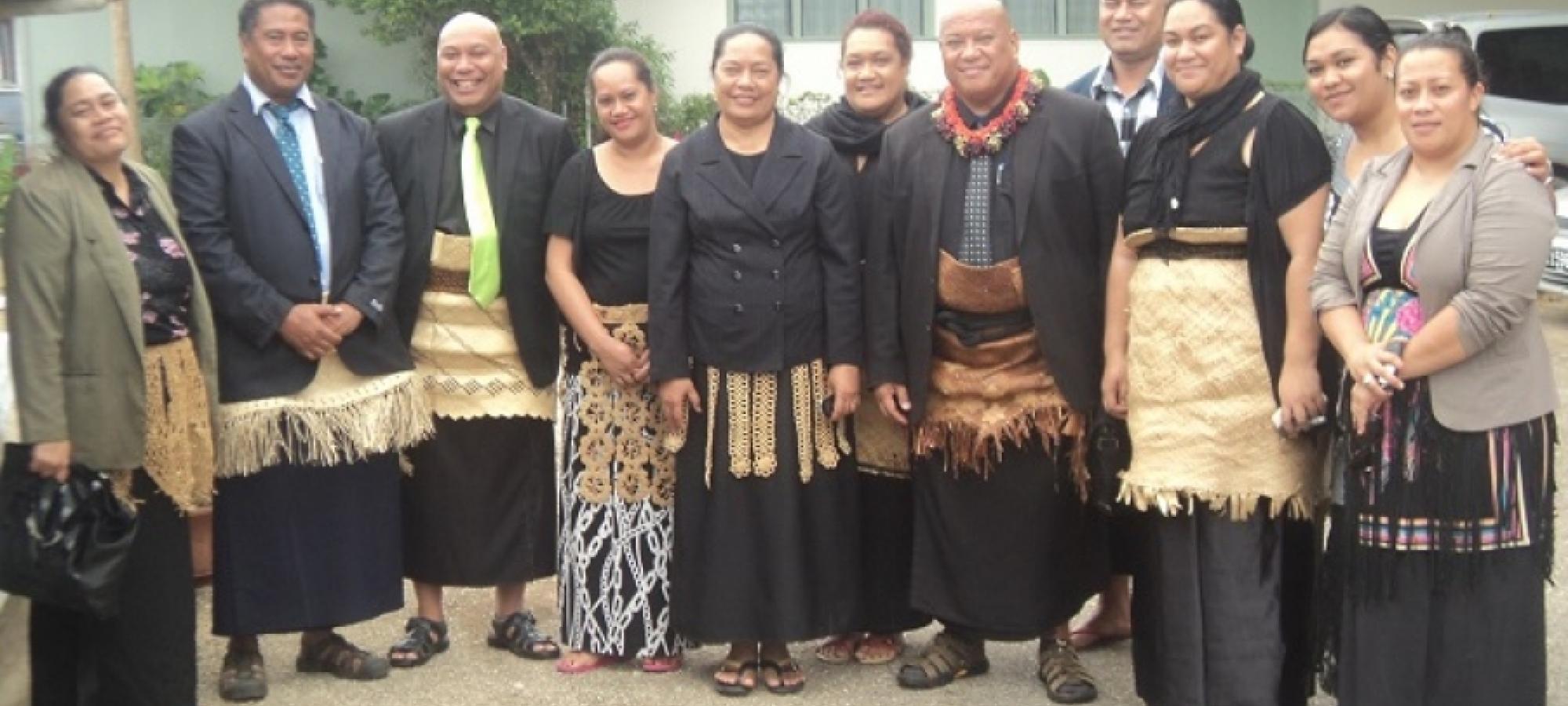
The Minister of Internal Affairs Hon. Lord Vaea, Lepolo Taunisila - SPC/RRRT Country Focal Officer, Whole Committee Chair, Sunia Fili and People’s MP Sione Taione, WCCC’s Director – ‘Ofa Guttenbeil Likiliki and WCCC’s staff outside the Parliament, following Whole Committee overwhelming majority in favour of the Bill.
4 September 2014, Tongatapu, Nuku’alofa, Tonga
All seventeen members attending Parliament today voted in favour of the Family Protection Bill (2013) during its third reading.
“This is an historical moment in Tonga’s parliamentary history, the Bill has taken us three weeks to debate on and on behalf of the women, children and men of Tonga, I thank the Chair of the Whole Committee for his good guidance during those deliberations and the members of parliament for showing your support for this Bill” said the Minister of Internal Affairs, Hon. Lord Vaea, following the full majority vote in favour of the bill.
The development of the Bill was an initiative of the Government of Tonga through the Ministry of Education, Women’s Affairs and Culture Women’s Affairs Division, and the Secretariat of the Pacific Community Regional Rights Resource Team. We acknowledge the technical and financial support rendered under the MOU in 2010 between Government and the SPC that has culminated in this fruitful outcome for the protection of the family in Tonga, especially the women and children.
This is a good practice not only in Tonga but in the region, of a collaborative partnership between the Ministries of Education and Training, Internal Affairs, the Attorney General’s Office, Ministry of Police, the Civil Society and the Secretariat of the Pacific Community. While the passing of the Bill includes amendments made by the Whole Committee during the second reading, the changes remain minor.
“The core areas of the Bill have remained intact despite some very heavy debating and at times opposition from members of the House. For example, the protection order that increases the powers of police to issue orders on the spot, while strongly opposed by some members, has remained in the Bill,” according to the Minister of Internal Affairs.
The Government currently financially contributes to the operations of the two service providers for victims of domestic violence, the Tonga National Centre for Women and Children (TNCWC) and Women and Children Crisis Centre (WCCC). The Ministry of Police has in operation a Domestic Violence Unit. The Ministry on Internal Affairs Women’s Department will continue to facilitate the coordination of the implementation of the Bill and is looking forward to the continued collaborative partnerships and support between inter ministerial agencies, the civil society and development partners.
For more information, please contact the Ministry of Internal Affairs, Women’s Affairs Division, tel 27 145, email [email protected]
Call for applications - Regional Youth and CSO Dialogue 23-27 June 2014
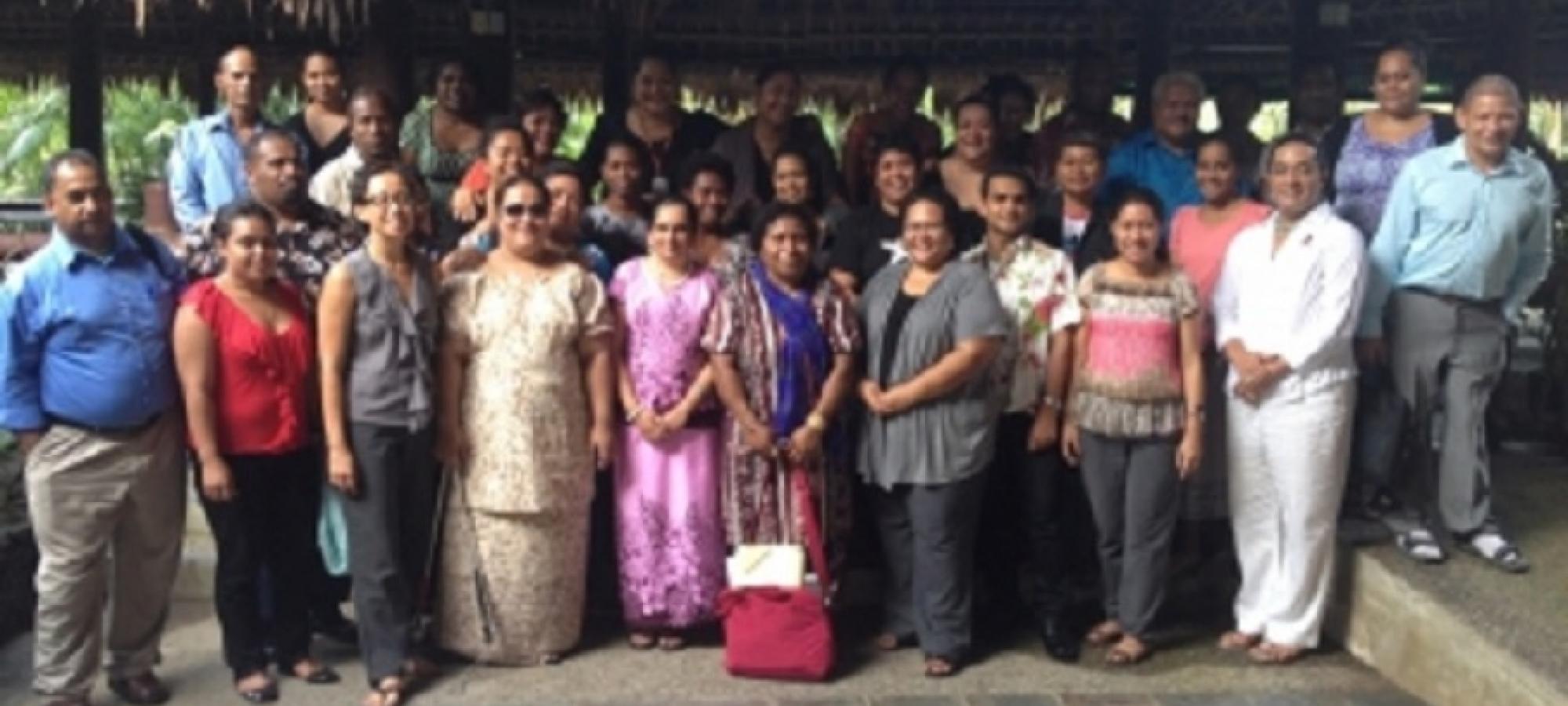
A coalition of regional partners, including the Secretariat of the Pacific Community’s Regional Rights Resource Team (SPC RRRT), UNDP Pacific Centre, Pacific Youth Council and the Pacific Islands Forum Secretariat (PIFS) will be convening a Youth and civil society dialogue to be held from the 23-27th of June in Nadi, Fiji.
SPC RRRT is pleased to invite one representative from Civil Society and one youth representative from each of the following Pacific Island Countries: Cook Islands, Federated States of Micronesia, Fiji, Kiribati, Nauru, Niue, Palau, Papua New Guinea, Republic of Marshall Islands, Samoa, Solomon Islands, Tonga, Tuvalu and Vanuatu
Download the conference announcement below for further details and the application form if you are interested to represent your country. Email us your completed form as soon as possible.
SPC_meeting_announcement_Regional_Youth_and_CSO_Dialogue_1.pdf
Another human rights first for Tonga
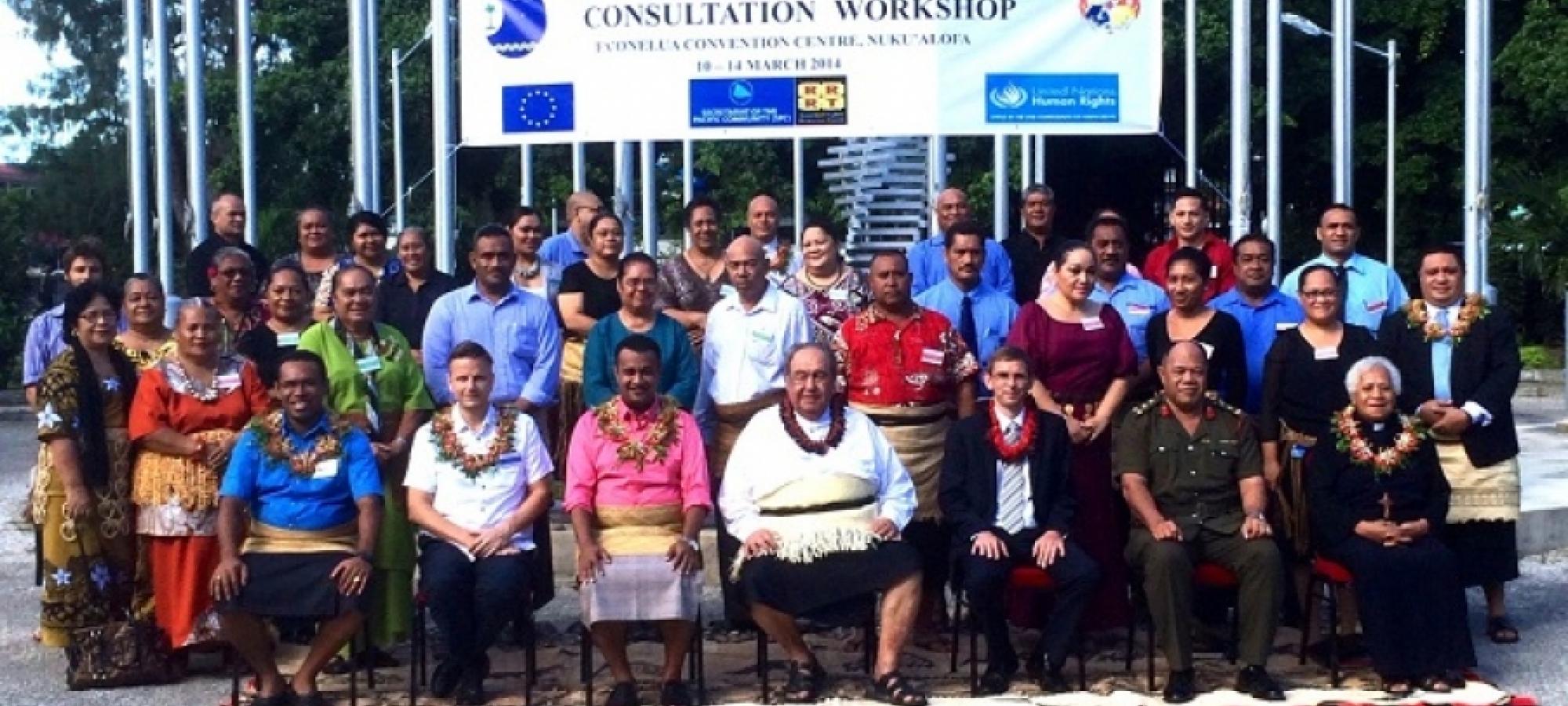
Participants at the Human Rights Consultation workshop in Nukualofa this week, 10–14 March 2014
Friday 14 March 2014, Secretariat of the Pacific Community (SPC) – Suva, Fiji
Tonga is not only the first country in the Pacific to be reviewed under the United Nations Human Rights Council’s Universal Periodic Review (having been reviewed both in 2008 and 2013), but is this week the first country in the region to organise a consultation to discuss its second UPR recommendations and how to implement them.
‘It is encouraging to see Tonga engage in dialogue and constructive discussions about the implementation of UPR recommendations as this will not only advance Tonga’s human rights commitments, but also promote engagement in the Pacific between governments, civil societies and citizens,’ said Romulo Nayacalevu, Senior Trainer with the Secretariat of the Pacific Community Regional Rights Resource Team (SPC RRRT), who is part of the national human rights consultation in Nuku’alofa this week.
‘It is expected following this consultation that Tonga will work towards developing a common core document and establishing a National Human Rights Coordinating Committee. We also hope Tonga will ratify core human rights treaties such as the Convention on the Elimination of all Forms of Discrimination against Women and the Convention on the Rights of Persons with Disabilities, and that it will report to the Committee on the Elimination of Racial Discrimination and the Committee on the Rights of the Child,’ Mr Nayacalevu added.
Speaking at the national consultation, Minister of Justice Clive Edwards said, ‘Tonga embraces the protection, promotion and advocacy of human rights for its citizens, and all humankind, as do all civilised countries.’
‘Tongan life is securely founded on the observance of respect, love, humility, loyalty, reciprocity, that is grounded on faith in a one true Christian God. These are our national treasures which we hold so dear to us, and which no Tongan should ever surrender,’ he added.
Since the completion of Tonga’s two reviews under the Universal Period Review Process in 2008 and 2013, Tonga has made considerable progress, including:
- adopting constitutional and political reform to allow a more democratically elected government;
- advancing the protection of women and children from violence in domestic surroundings;
- adopting policies and practices to ensure gender equality and protection of the rights of the child; and
- considering the ratification of the Convention on the Elimination of all Forms of Discrimination against Women, the Convention on the Rights of Persons with Disabilities and related core human rights treaties.
‘I appreciate that there is more to be done such as the creation of a national human rights institution and the ratification of fundamental international human rights treaties and conventions, and also the amendment of legislation to be consistent with international law,’ said the minister.
On behalf of the Government of Tonga, Minister Edwards welcomed all participants to the consultation and said he hoped a balanced approach to progressing human rights in Tonga would be agreed on during the consultation.
‘I encourage all participants to use this important occasion to have dialogue and debate, and to open your mind to new subjects and views, no matter how strange and foreign they may be. At the same time I would remind you that we are currently the custodians of our cultural values, and the navigators of our future. So I hope that debates and discussions are tempered with a sense of protection of what is Tongan,’ he concluded.
The consultation, which seeks to increase the capacity of government to monitor, promote and advocate for human rights and good governance standards, is funded by the European Union (EU) and coordinated and facilitated by the Pacific Islands Forum Secretariat (PIFS), in partnership with the Office of the High Commissioner for Human Rights (OHCHR) Pacific Regional Office and SPC RRRT.
For more information, please contact Jilda Shem, SPC RRRT Communications Officer on +679 330 5994 or email [email protected].
Pacific representatives meet to develop campaigns to address violence against women
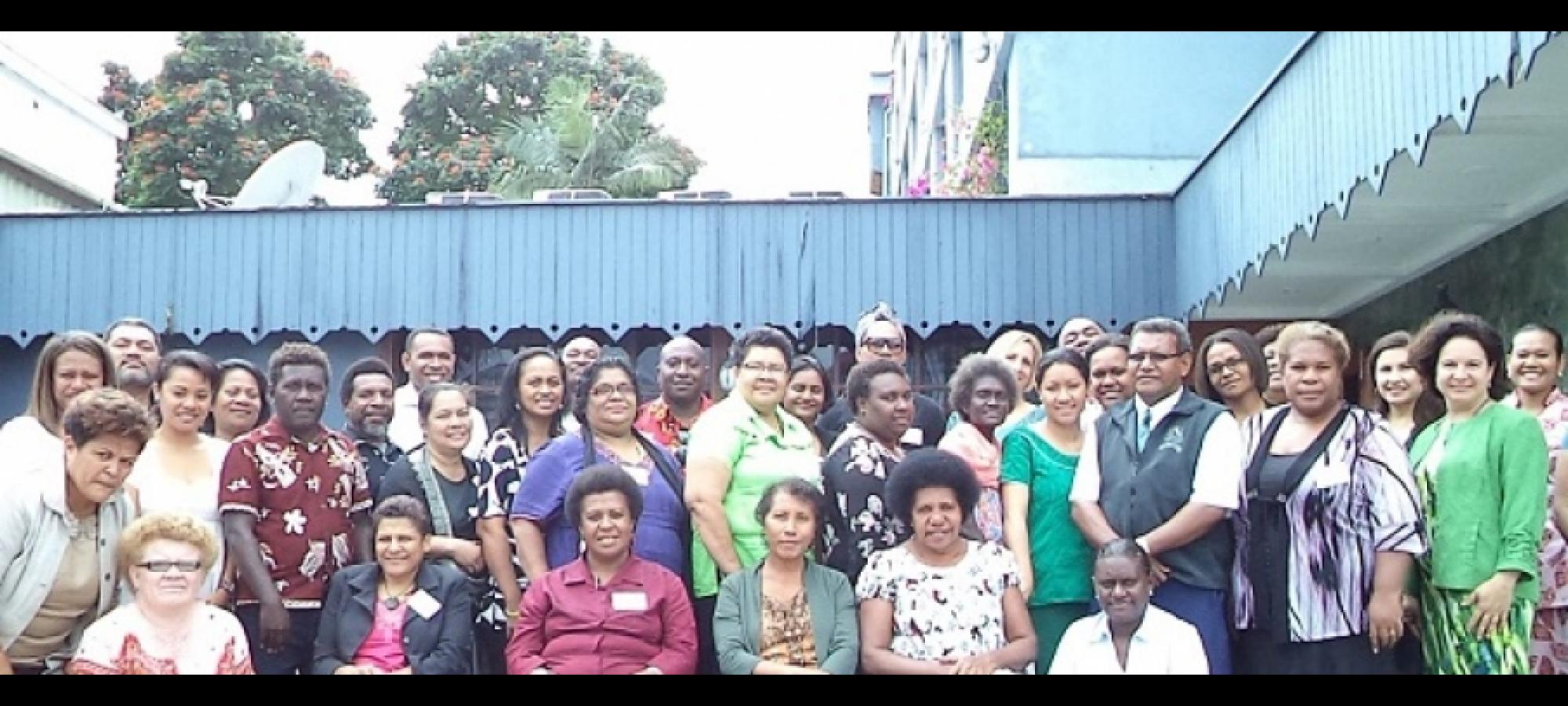
Tuesday 13 August 2013, Secretariat of the Pacific Community (SPC), Suva, Fiji
Twenty-six representatives from government as well as non-governmental organisations in six Pacific Island countries are in Suva this week for a five-day regional workshop to develop concrete action plans to address high rates of violence against women in the region.
The workshop organised by the Secretariat of the Pacific Community Regional Rights Resource Team (SPC RRRT) in partnership with the UN Women Fiji Multi-country Office is part of the support provided to Pacific organisations that are recipients of grants from the UN Women Pacific Regional Facility Fund to Eliminate Violence against Women.
Speaking at the opening of the consultation, guest speaker Maha Muna, Gender Adviser with the United Nations Population Fund (UNFPA) in Suva called on participants to remember youth in their campaigns and to ensure that interventions also focus on empowering young people as a vital way forward in ending the intergenerational cycle of violence in homes and communities in the region.
‘Today, in the spirit of International Youth Day, let us recommit to removing the scourge of violence from the lives of Pacific women and young people,’ she said.
In highlighting examples of the high prevalence of violence amongst young people in the region, Ms Muna spoke of the findings of a 2010 United Nations Children’s Fund study, Understanding HIV and AIDS. The study reported that 38% of sexually active youth in Solomon Islands had experienced forced sex, with 20% reporting their first sexual encounter as forced. In Vanuatu, the study reported that 45% had experienced forced sex, with 36% reporting that their first sexual encounter had been forced, and in Kiribati, it reported that 43% of sexually active youth had experienced forced sex, with ongoing vulnerability for 79%, and that for 21% their first sexual encounter was forced.
Ms Muna also reaffirmed the findings of Family Health and Safety Studies in the region, supported by the Australian Agency for International Development (AusAID) and UNFPA in collaboration with SPC and national bureaus of statistics, which demonstrated high prevalence of violence against women in the Pacific, particularly in the context of intimate relationships. The recent research shows that 68% of ever-partnered women between the ages of 15 and 49 in Kiribati have experienced physical or sexual violence by a partner. The rates are 64% in Solomon Islands and 46% in Samoa.
‘Breaking the cycle of violence in the region is a big challenge. Your country advocacy and action plans must focus on how you can engage in changing hearts and minds, behaviours and attitudes, along with services, policies and laws,’ Ms Muna said.
Activities on the agenda for this week’s consultation include reviewing national country strategies and advocacy initiatives in addressing violence against women, enhancing capacities of the participants to effectively challenge discriminatory laws and practices in countries using a human rights based approach and developing two-year advocacy and action plans to address gender based violence in the countries.
Participants are government and civil society stakeholders from Fiji, Papua New Guinea, Samoa, Solomon Islands, Tonga and Vanuatu. This consultation and work to support legislative change in addressing violence against women is supported by UN Women and AusAID.
For more information, please contact Jilda Shem, SPC RRRT Communications Officer on +679 330 5994 or email [email protected] or Olivia Owen, Inter-Agency Initiatives Coordinator on +679 330 1178 or email [email protected].
SPC enhances knowledge of Tonga stakeholders on the rights of people with disability
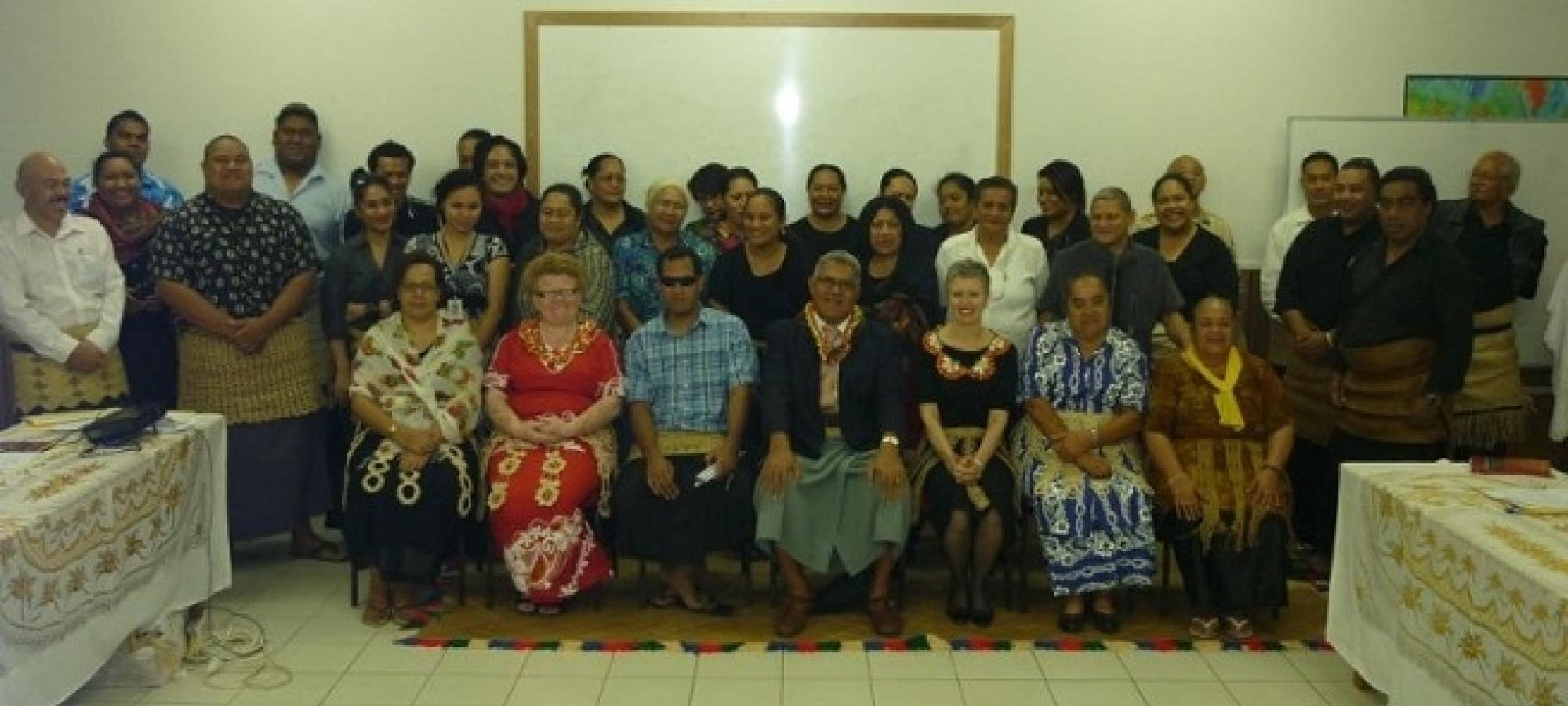
Press release: Friday 2 August 2013, Secretariat of the Pacific Community (SPC), Suva, Fiji
A 3-day national consultation on the rights of persons with disabilities organised by the Tonga Ministry of Health and Department of Women’s Affairs (Ministry of Internal Affairs) in partnership with Naunau’o e’Alamaite Tonga Association Incorporated, Tonga Red Cross and the Secretariat of the Pacific Community Regional Rights Resource Team (SPC RRRT) is concluding today in Nukualofa, Tonga.
The consultation participants are calling for stronger commitment and recognition of the rights of persons with disabilities.
‘This consultation is timely and appropriate. Tonga must not continue to turn a blind eye to the many challenges faced by persons with disabilities and their organisations, such as negative attitudes, prejudice and lack of recognition of the contribution people with disabilities make to society,’ said Chief Executive Officer of the Ministry of Internal Affairs Lopeti Senituli at the opening of the consultation this week.
Mr Senituli is confident the partners can work together to enable the Government of Tonga to ratify the Convention on the Rights of Persons with Disabilities and to have Cabinet adopt a National Policy for Persons with Disabilities as it had agreed to do in 2011.
‘I hope that the outcomes of the consultation will guide us to work together and to take responsibility in making a link between practical problems that our persons with disabilities have and fulfilment of their rights. We must also acknowledge the limited funding, and lack of educational, training and employment opportunities available for them and commit ourselves to improving those conditions,’ Mr Senituli said.
Mr Senituli also acknowledged the various non-governmental and civil society organisations, such as the Alonga Centre, the Ofa, Tui mo ‘Amanaki, the Mango Tree Centre, the Naunau ‘a e ‘Alamaite Tonga Association and the Tonga National Disability Congress, for the critical services they provide for persons with disabilities and the Ministry of Education and Training’s Inclusive Education Class at Ngele’a GPS and the Ministry of Health’s work in looking after persons with mental disabilities.
The Convention for the Rights of Persons with Disabilities promotes, protects and ensures the full and equal enjoyment of all human rights and fundamental freedoms by all persons with disabilities, and promotes respect for their inherent dignity.
The consultation is attended by government civil servants and non-government organisations in Tonga and is one of various SPC RRRT activities that complement the support to the Government of Tonga in the area of disability rights by other development partners such as the United Nations Economic and Social Commission for Asia and the Pacific (UNESCAP), the Pacific Disability Forum and the Pacific Islands Forum Secretariat.
For more information, please contact Jilda Shem, SPC RRRT Communications Officer on +679 330 5994 or email [email protected].
- Read more about SPC enhances knowledge of Tonga stakeholders on the rights of people with disability



